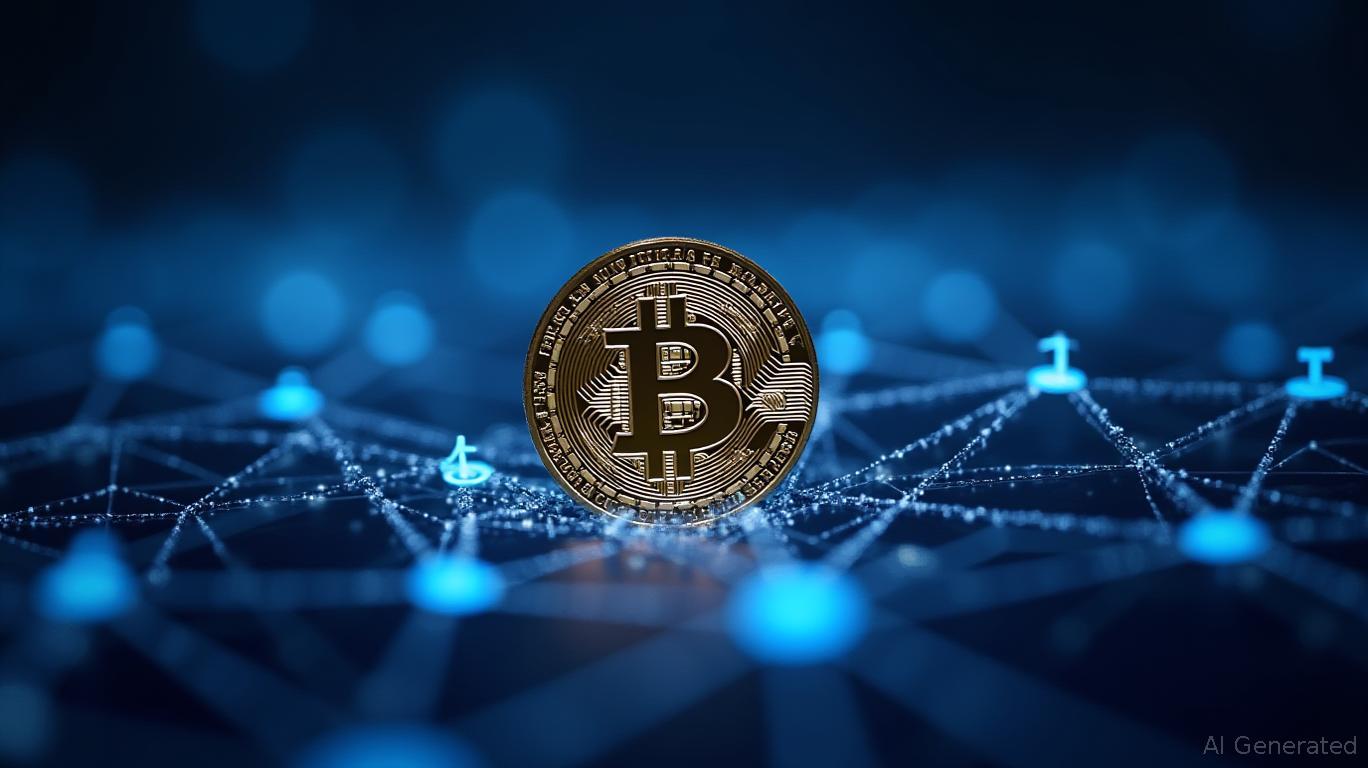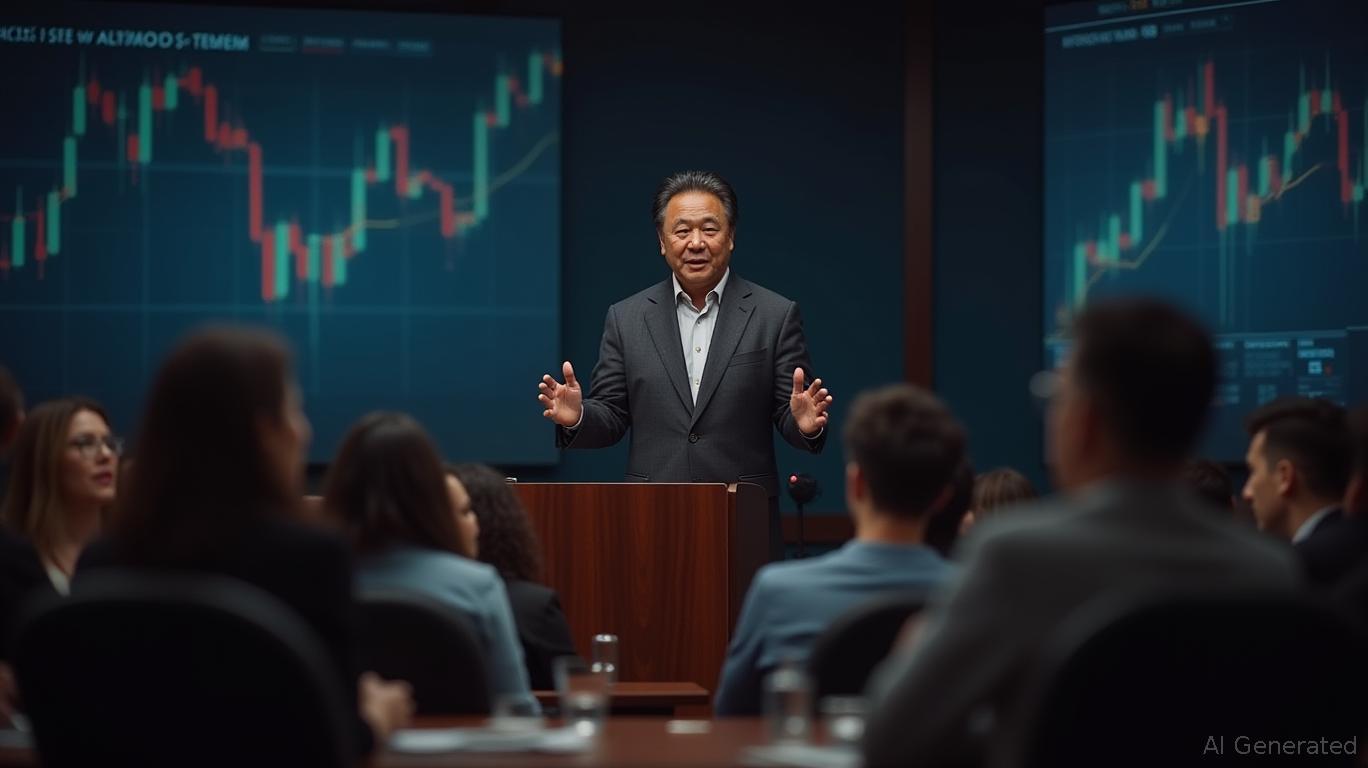U.S. and China Reach Temporary Agreement: One-Year Pause on Rare Earth Disputes Despite Continued Strains
- China and the U.S. reached a provisional trade truce, suspending rare earth export controls and reducing fentanyl-related tariffs for one year. - The agreement includes conditional pauses on new sanctions and Nexperia export bans, with annual renegotiation and lingering strategic vulnerabilities. - Lynas Rare Earths adjusted production amid uncertainty, while Nexperia's shipments resumed to ease automotive supply chain risks. - Market reactions remain mixed as the truce addresses immediate tensions but l
China has decided to postpone its planned export restrictions on rare earth minerals for a minimum of one year, making a significant concession as part of a temporary trade agreement with the United States designed to reduce friction between the two economic superpowers. This arrangement, revealed following a pivotal meeting between President Donald Trump and Chinese President Xi Jinping in South Korea, also features a 50% cut in U.S. tariffs related to fentanyl on Chinese products and a halt to new American sanctions against Chinese companies, according to a
The decision to delay rare earth export controls, a central element of the agreement, directly addresses U.S. worries over China’s dominant position in the supply of materials vital for advanced technologies such as semiconductors, electric vehicles, and defense systems. Previously, Beijing had warned it might limit exports of rare earths and related technologies, leading Trump to threaten 100% tariffs on Chinese goods, according to

Lynas Rare Earths, the leading rare earth producer outside China and based in Australia, has already modified its operations to cope with the ongoing uncertainty. CEO Amanda Lacaze mentioned that the company will "carefully manage production levels" until there is more clarity on China’s restrictions, according to a
The trade pact also resolved a crisis in the global automotive sector that began when China blocked exports from Nexperia, a Dutch semiconductor company owned by China’s Wingtech. The Dutch government had taken control of Nexperia in September over national security concerns, prompting China to stop all shipments from the firm’s Chinese plants, as
This agreement represents a tactical pause in the ongoing economic competition, with both countries maintaining significant bargaining power. The Trump administration highlighted the immediate advantages for U.S. farmers, who will benefit from renewed Chinese purchases of soybeans, and for sectors dependent on rare earths, as mentioned in the MarketMinute report. At the same time, China’s pledge to limit exports of fentanyl precursors—a major U.S. request—remains untested, with critics pointing out the absence of binding enforcement, according to the WSJ analysis.
Market response to the deal has been mixed. While the restart of Nexperia shipments and lower tariffs have brought short-term relief, experts warn that the agreement does not tackle deeper issues, such as China’s technological goals or U.S. moves to reduce reliance on Chinese supply chains, as noted in the Bloomberg report. The annual review and conditional terms highlight the agreement’s fragility, with both sides likely to return to a more confrontational stance if confidence breaks down, the WSJ analysis cautions.
Disclaimer: The content of this article solely reflects the author's opinion and does not represent the platform in any capacity. This article is not intended to serve as a reference for making investment decisions.
You may also like
Bitcoin News Today: Bitcoin's Lightning Network Sets Its Sights on Surpassing SWIFT and Visa in Worldwide Transactions
- David Marcus, ex-PayPal executive and Lightspark CEO, argues Bitcoin's Lightning Network could process trillions in daily transactions, surpassing SWIFT and Visa in volume and efficiency. - The Lightning Network's capacity has grown 3,000% since 2025, with 20,000+ nodes enabling millions of instant, low-cost transactions per second through Layer-2 infrastructure. - Institutional adoption is accelerating, with $60B+ in Bitcoin ETF inflows and companies like MicroStrategy holding Bitcoin, while stablecoins

Bitcoin News Today: The Evolution of Bitcoin's Market: From Speculation to Practical Financial Use
- Bitcoin's future sparks debate as leaders like Saylor predict $20M/BTC by 2045, while Kiyosaki forecasts $200K by 2025 amid market volatility. - Tesla's $1.3B BTC holdings contrast with SpaceX's $400M transfer, hinting at strategic reallocation ahead of potential market corrections. - SoFi and Lightspark launch Bitcoin-powered international transfers via Lightning Network, expanding crypto's financial utility in cross-border payments. - Global adoption grows with Venezuela's blockchain interbank system a

Bitcoin Updates Today: Kiyosaki’s Wager on Bitcoin: Reassessing Investment Strategies Amid Declining Fiat Supremacy
- Robert Kiyosaki predicts a November 2025 global financial crash, urging investors to shift to Bitcoin and gold as inflationary fiat systems erode trust. - He criticizes traditional 60/40 portfolios and highlights Bitcoin's scarcity and institutional adoption as a "digital gold" alternative amid rising national debt. - Michael Saylor of MicroStrategy supports Bitcoin's long-term potential, forecasting $150,000 by year-end and $1 million per coin within a decade. - Market data shows declining exchange bala

Public-private collaboration against crypto crime halts $300M, demonstrating that technology and cooperation can disrupt illegal activities
- T3 FCU froze $300M in criminal assets since 2024, aiding 23 jurisdictions including Brazil’s Operation Lusocoin. - Europol warns crypto crime grows complex with privacy coins and layering techniques, totaling $40.9B in 2024 illicit flows. - Public-private partnerships like T3 FCU’s AI-driven analytics and Europol’s SIENA system aim to preempt illicit crypto activity. - Experts stress standardized blockchain tools and cross-border training to address inconsistent methodologies in crypto crime investigatio